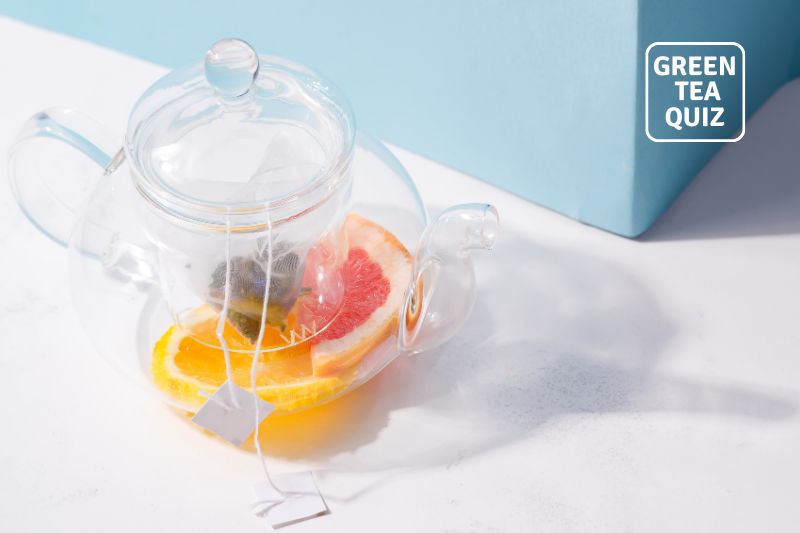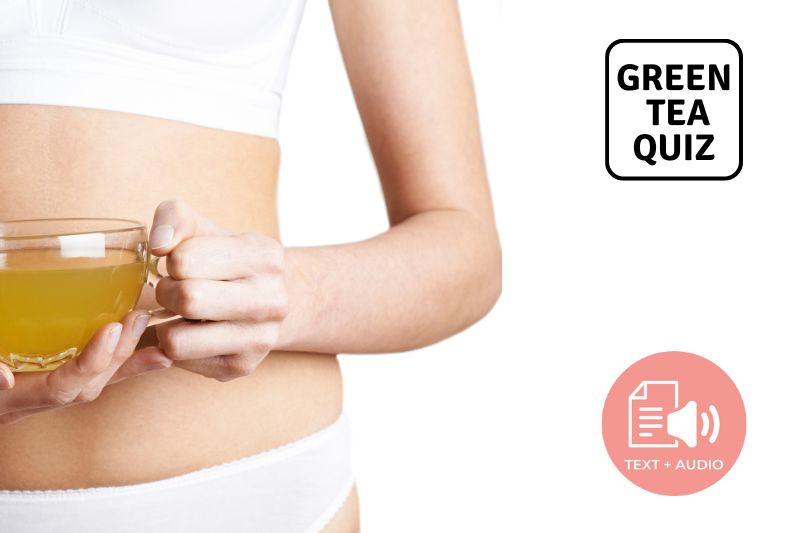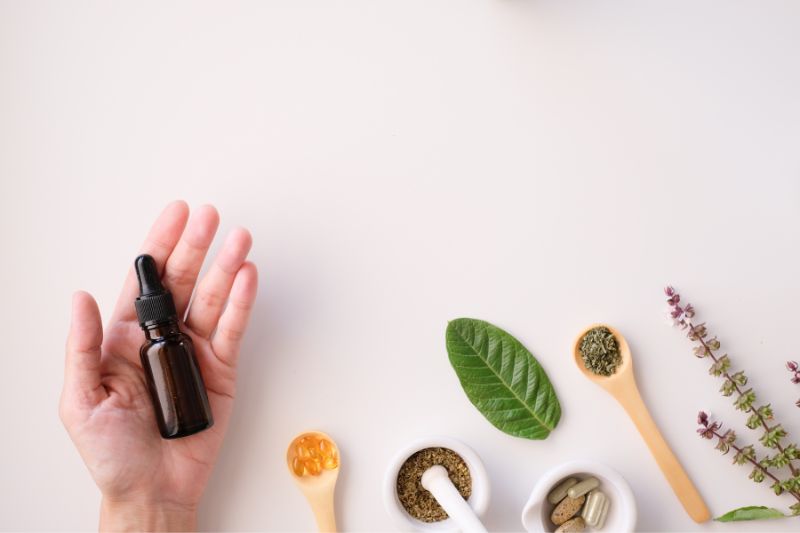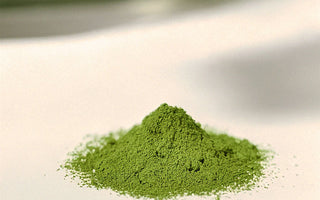The general idea of green tea is that it's healthy for you. For example, when choosing between your average soda and green tea, chances are you will think of green tea as the healthier option. This is for good reason, as there is a significant amount of evidence highlighting various green tea health benefits. However, there is much to dive into when it comes to the data, research, and specific impacts tea has on our bodies. Do you know whether green tea is healthy for your liver? What impact does green tea have on my liver, if any?
Chances are you have not received the answer to these questions, among others, from school or your peers. Perhaps you do not know the answer at all. Let us take a look at green tea’s impact on your liver and find out if it is a health benefit or a cost.
What do you know about your liver?
The liver is a large, triangular-shaped organ that fits in your upper right abdomen behind the ribs and right below the diaphragm. It is, in fact, the largest organ in your body, supplied with two blood supplies: the hepatic artery and the hepatic portal vein. The hepatic artery brings blood from the heart, and the hepatic portal vein brings blood from the intestines. This organ is quite impressive in terms of its functions. It assists in the digestion and absorption of vitamins. It stores glucose derived from carbohydrates when it is abundant in the body and releases it when needed in order to maintain energy for the body. The liver converts fats into energy sources as well. Further, the liver breaks proteins down into amino acids and converts amino acids to glucose, fats, and proteins. It also helps synthesize cholesterol and regulate cholesterol levels.

The liver and spleen degrade old red blood cells into breakdown parts. For example, the liver cuts these products out of the blood and eliminates them via urine. It also helps remove toxic poisons, alcohol, drugs, etc. But it is much more than this; the liver contains 300 billion specialized cells, can filter about 1.7 liters of blood per minute, and can regenerate itself as long as at least 25% of the healthy liver remains. It can become whole again. There are many more interesting elements to the liver, but this gives you a good idea of its importance!
Therefore, taking care of your liver is very important to prevent the onset of liver diseases such as non-alcoholic fatty liver disease or alcoholic liver disease. As these diseases are asymptomatic until the later stages of the disease, it is vital that you check the health of your liver. You can do so via an alcohol liver test that will determine the level of fibrosis or steatosis in the liver.
Therefore, taking care of your liver is very important to prevent the onset of liver diseases such as non-alcoholic fatty liver disease or alcoholic liver disease. As these diseases are asymptomatic until the later stages of the disease, it is vital that you check the health of your liver. You can do so via an alcohol liver test that will determine the level of fibrosis or steatosis in the liver.
Green tea and your liver
The liver does the heavy lifting when it comes to detoxifying the body, but this isn’t to say that green tea can't help! How exactly does it help? Green tea contains a whole host of elements, but one of those is natural polyphenols. Polyphenols are found in a whole host of plant-based foods as well as in green tea, and for you chocolate lovers, yes, they are even found in chocolate! In effect, they are powerful micronutrients that our body needs.
But what of the health benefits related to these unique micronutrients? There are many links to note: They can act as antioxidants, neutralizing free radicals that damage your cells and increase the risk of cancer, diabetes, and heart disease. Polyphenols also reportedly help reduce inflammation. Studies have shown that polyphenols may also lower blood sugar levels, prevent blood clots, and help with overall brain functionality.

The antioxidants known as catechins in tea work to lower cholesterol (green tea can significantly reduce LDL cholesterol specifically as well as serum cholesterol while increasing HDL, or good cholesterol) and blood pressure, and they also help protect your liver. While hepatotoxicity refers to chemical-driven damage to your liver, chemicals such as green tea and its contents protect your liver. In other words, green tea is antihepatotoxic.
The caffeine in green tea has also been linked to antitumor properties, and green tea actually boosts the immune system. The caffeine in green tea can also support the liver by acting as a diuretic, thus eliminating toxins.
Can Green Tea Damage My Liver?
It can, yes. However, it is a matter of amounts rather than absolutes. In recent years, green tea extract supplements, which effectively include concentrated doses of catechins, have made international news. The European Food Safety Authority stated that these supplements were generally safe, but a dose of over 800 milligrams per day may pose health concerns. The danger is whether it becomes toxic for your system or your liver. If you develop yellowing of the skin and eyes, nausea, dark urine, and unusual tiredness, then you need to stop using them and talk to your doctor. In part, Paracelsus was right: "All things are poisons, for there is nothing without poisonous qualities. It is only the dose that makes a thing poison." But I am not taking supplements; do I need to worry? According to Chemical Biology and Pharmacognosy Professor Chung Yan, up to 10 small cups of green tea are likely fine.

Thankfully, this is a fair bit of tea for most people, and you likely will not have to worry, but it is nonetheless helpful to us tea lovers! Please note that for pregnant and breastfeeding mothers, the average amount of green tea is approximately 100 mg of caffeine, and it is recommended that drinking more than 2 cups a day of green tea is potentially unsafe. If you are unsure about green tea amounts and their effects on your body, it's best to speak with your doctor.
Get Free Bonus Books

Sign up for free to the Green Tea Club to get advice and exclusive articles about how to choose Japanese Tea, and tips, tricks, and recipes for enjoying Japanese tea.
About the author
Kei Nishida
Author, CEO Dream of Japan
Certification: PMP, BS in Computer Science
Education: Western Washington University
Kei Nishida is a passionate Japanese green tea connoisseur, writer, and the founder and CEO of Japanese Green Tea Co., a Dream of Japan Company.
Driven by a deep desire to share the rich flavors of his homeland, he established the only company that sources premium tea grown in nutrient-rich sugarcane soil—earning multiple Global Tea Champion awards.
Expanding his mission of introducing Japan’s finest to the world, Kei pioneered the launch of the first-ever Sumiyaki charcoal-roasted coffee through Japanese Coffee Co. He also brought the artistry of traditional Japanese craftsmanship to the global market by making katana-style handmade knives—crafted by a renowned katana maker—available outside Japan for the first time through Japanese Knife Co.
Kei’s journey continues as he uncovers and shares Japan’s hidden treasures with the world.
Learn more about Kei









